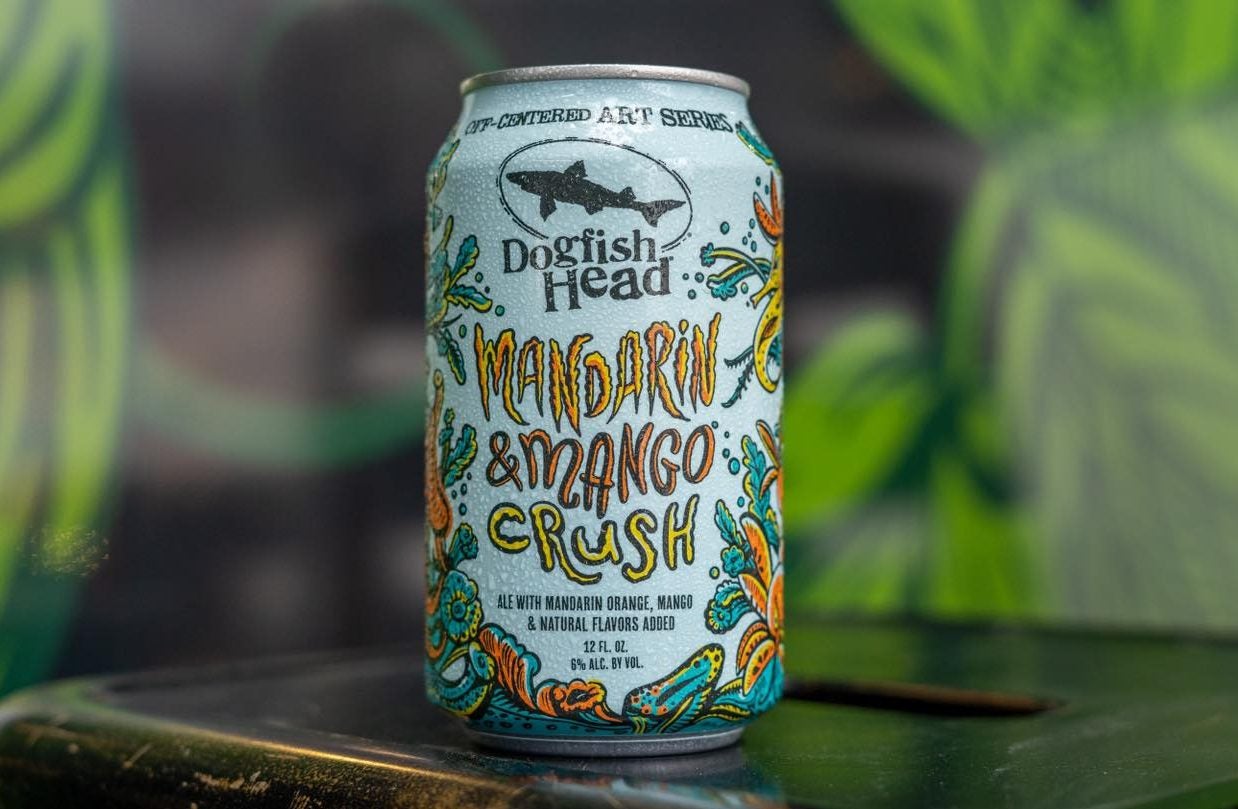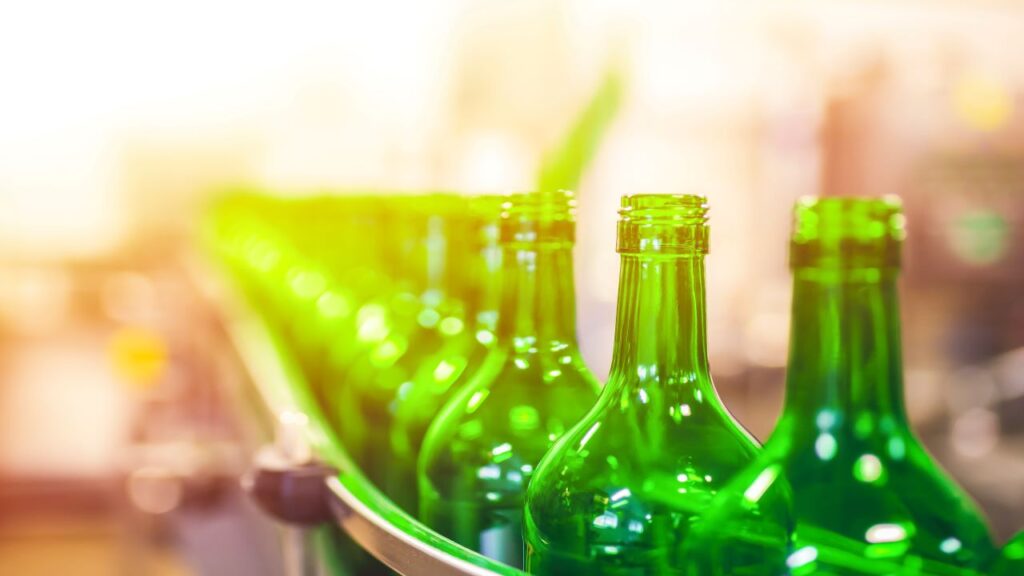
Alongside our daily news coverage, features and interviews, the Just Drinks team rounds up the week’s top stories with a series of data snapshots.
This week, the latest figures on craft-beer production in the US were published, with the sector seeing output decline.
In Europe, Estonia set out plans for a tax on sugary and sweetened drinks, with the Baltic state ranking among the highest EU member states when looking at rates of obesity.
Meanwhile, elsewhere on our news pages, we looked at the latest numbers from English wine-maker Chapel Down and reported on Nigerian Breweries’ plans to bolster its profits. The Heineken-backed brewer fell into the red in 2023.
Craft-beer production declines in US
The amount of craft beer produced in the US in 2023 declined despite a record number of operating breweries.
Annual beer production for small and independent brewers dropped 1% on 2022, to 23.4m barrels, according to the Brewers Association’s (BA) annual report.
How well do you really know your competitors?
Access the most comprehensive Company Profiles on the market, powered by GlobalData. Save hours of research. Gain competitive edge.

Thank you!
Your download email will arrive shortly
Not ready to buy yet? Download a free sample
We are confident about the unique quality of our Company Profiles. However, we want you to make the most beneficial decision for your business, so we offer a free sample that you can download by submitting the below form
By GlobalDataCraft’s production slump comes as the country’s overall beer market saw a 5.1% decrease in volumes last year, which the BA attributed both to pricing and “lightly stronger onsite sales growth versus distribution”.
Bart Watson, vice president of strategy and chief economist of the Brewers Association said: “2023 was another competitive and challenging year for small and independent brewers.
“Nevertheless, even as growth has downshifted, small brewers have proved quite resilient, as seen in the increase in number of breweries, relatively low closing rates, and gains in onsite sales and jobs.”
Estonia pushes ahead with – but postpones – plans for drinks tax
Estonia’s government has postponed plans to introduce a tax on sugary and sweetened drinks to 2026.
The bill to implement a levy on sugary drinks and those that contain artificial sweeteners will now go before Riigikogu, Estonia’s parliament. It has to pass three parliamentary readings to be implemented.
Initially, the country’s government had planned to introduce the tax next year.
A spokesperson of the Estonian Ministry of Social Affairs said the government had decided to delay the move to give businesses and the Estonian Tax and Customs Board “sufficient time to prepare”, including investing in IT.
The Estonian government anticipates €25m ($26.6m) of income from the levy in 2026, although it said that is “expected to decline in the coming years, as the tax on sugary drinks directs people to consume fewer drinks”.
The tax “aims to reduce excessive sugar consumption and direct people to prefer less sweet and unsweetened drinks”, the government said.
“Sweet drinks are not a necessary part of the diet, drinking them does not make you feel full. The consumption of sweet drinks is associated with several serious health problems, such as type 2 diabetes, and cardiovascular and liver disease, as well as affecting oral health and contributing to obesity. It would be beneficial for everyone to cut down on their consumption,” Health Minister Riina Sikkut added.
Heineken-backed Nigerian Breweries to halt production at two sites
Nigerian Breweries, in which Heineken owns a majority stake, has set out plans to suspend production at two of its nine plants.
The Star lager brand owner posted a loss of N106bn ($92.9m) in 2023 and has prepared moves to bear down on costs and shore up its balance sheet.
In a stock-exchange filing, the publicly listed Nigerian Breweries did not name the two production sites that may see a “temporary suspension” of their output. Just Drinks has approached Heineken for further comment. However, Nigerian Breweries said it had invited unions to discuss the plans.
The brewer is also planning to raise N600bn through a rights issue. Its 2023 loss – which compared to a N13.19bn profit in 2022 – came on the back of rising “operational costs” and exchange-rate volatility. Nigerian Breweries booked foreign-exchange losses of N153bn amid the devaluation of the naira.
The company is also looking to “optimise” production at its other seven breweries.
“The tough business landscape characterised by double-digits inflation rates, naira devaluation, FX challenges and diminished consumer spend has taken its toll on many businesses, including ours,” Hans Essaadi, Nigerian Breweries’ CEO, said.
Chapel Down hails “landmark year”
Chapel Down this week booked higher annual sales and profits, a set of solid results for the English-wine maker.
CEO Andrew Carter said: “Chapel Down continues to grow profitably – a core strength which, along with our strong balance sheet, makes us resilient and underpins our ambitious future growth plans."
For the full year to 31 December, Chapel Down’s net sales revenue (net of retro) rose 15% year-on-year to £17.2m.
Operating profit increased 81% to £2.3m. Adjusted EBITDA grew 87% to £5.4m, driven by “profitable trading” as well as grape-price adjustment following a bumper 2023 harvest.
Despite falling still-wine sales in 2023 – with net sales down 7% to £2.6m compared to 2022 – Carter said there was still “major” interest in its products.
“The still-wine side of the market is more competitive,” Carter said. “But what we are seeing is that there is major consumer interest for our still wines in and around the £15 price point.”
Chapel Down's focus remains on its sparkling portfolio – which forms around 80% of sales – but Carter expects to sell 30-40% more still wines in 2024 following a record 2023 harvest. He also expects to increase volumes of its “gently carbonated” range, A Touch Of Sparkle, to soak up the surplus.






